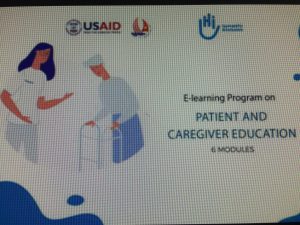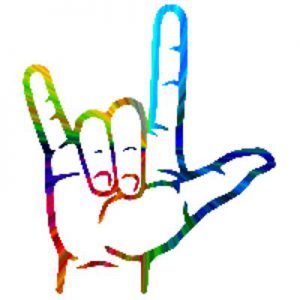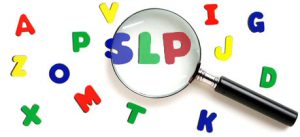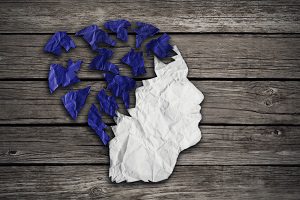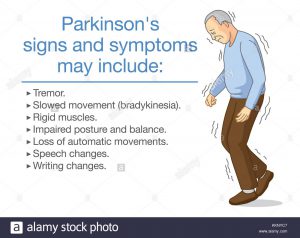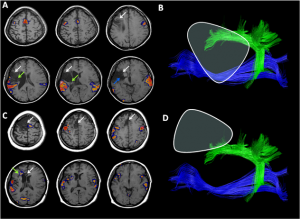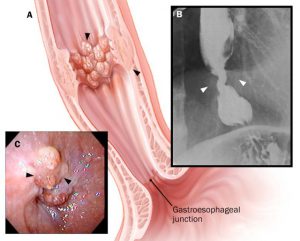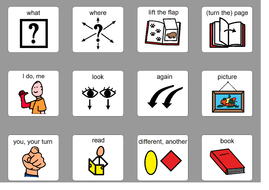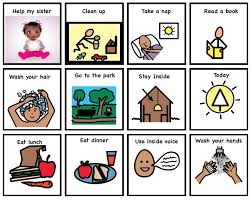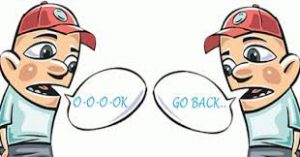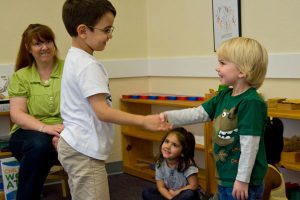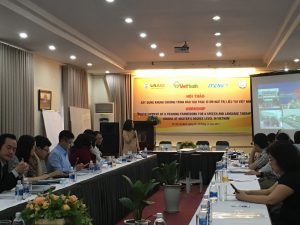Data
Release an E-learning course for Rehabilitation service providers on Patient and Caregiver Education
Humanity & Inclusion Vietnam releases its e-learning program on Patient and Caregiver Education aiming at improving current practices related to patient discharge and transition of care from hospital to the patient’s home. The overall objective is to improve current practices related to patient discharge and transition of care from hospital to the patient’s home. At the end of the training, participants will be able to effectively train and educate patients and their care-takers or family members so that care follow-up can take place at home following patient discharge from hospital. Targets of the training are Rehabilitation service providers, including but not limited to: physio/occupational/speech therapists, nurses and doctors. The training is structured with 6 modules. In order to be able take the course according to their professional settings, participants have the possibility...Đọc Thêm
Read moreGoing to a Speech Therapist
Reviewed by: Amy Nelson, MA, CCC-SLP Some kids have trouble saying certain sounds or words. This can be frustrating because others may have trouble understanding what they’re trying to say. The good news is that kids who have trouble saying certain sounds or understanding others can go to a special kind of therapist for help — speech therapists (also called speech-language pathologists). What Do Speech Therapists Help With? Speech therapists help people of all ages with different speech and language disorders. Here are some of them: articulation(say: ar-tik-yuh-LAY-shun) disorders: This when a kid has trouble saying certain sounds or saying words correctly. “Run” might come out as “won.” Or “say” may sound like “thay.” Lisps are considered articulation disorders. fluency(say: FLOO–en-see) disorders: If a kid...Đọc Thêm
Read moreSpeech-Language Therapy (for parents)
Reviewed by: Brooke Crenshaw, MS, CCC-SLP In a recent parent-teacher conference, maybe the teacher expressed concern that your child could have a problem with certain speech or language skills. Or perhaps while talking to your child, you noticed an occasional stutter. Could your child have a problem? And if so, what should you do? It’s wise to intervene quickly. An evaluation by a certified speech-language pathologist can help find out if your child is having problems. Speech-language therapy is the treatment for most kids with speech and/or language disorders. Speech Disorders, Language Disorders, and Feeding Disorders A speech disorder refers to a problem with the actual production of sounds. A language disorder refers to a problem understanding or putting words together to communicate ideas. Speech disorders include: Articulation disorders:difficulties producing sounds...Đọc Thêm
Read moreSpeech Therapy for Parkinson’s Disease: Management and Treatment
Here’s a sample of the assistive devices that are available to help people with Parkinson’s disease communicate more clearly (if they are available): Palatal lift This is a dental apparatus that is similar to a retainer. It lifts the soft palate and stops air from escaping out of the nose during speech. Amplification This is a personal amplifier that can be used to increase vocal loudness in soft-spoken people. The amplifier also decreases voice fatigue. TTY telephone relay system This is a telephone equipped with a keyboard so speech can be typed and read by a relay operator to the listener. Either the whole message can be typed or just the words that are not understood can be typed. Low-technology devices Notebooks and language boards can be used as alternative communication techniques. High-technology electronic speech enhancers, communication devices Computers with voice synthesizers...Đọc Thêm
Read moreGuidelines for Speech-Language Therapy in Parkinson’s Disease
By: Hanneke Kalf, Bert de Swart, Marianne Bonnier-Baars, Jolanda Kanters, Marga Hofman, Judith Kocken, Marije Miltenburg, Bas Bloem, Marten Munneke With respect to Parkinson’s disease, speech-language pathology focuses on three domains: difficulty with speech: hypokinetic dysarthria and the influence of cognitive impairments on language comprehension, language use and communication skills difficulty with chewing and swallowing: dysphagia, choking and slow chewing and swallowing difficulty with controlling saliva: drooling or dribbling of saliva For the rehabilitation of persons with Parkinson’s disease (PwP), Morris & Iansek have described a theoretical model which has been met with positive experiences in large Parkinson’s centers abroad. This model consists of the following five basic assumptions: “Normal movement is possible in Parkinson’s disease; what is required...Đọc Thêm
Read moreA randomized controlled trial of very early rehabilitation in speech after stroke
“Aphasia affects approximately a third of the 440,000 individuals living with stroke in Australia. Recovery from aphasia is highly variable with multiple factors believed to contribute to the overall extent of communication recovery achieved by each individual. There are currently few available specific medical treatments designed to reduce the impacts of aphasia occurring as a consequence of stroke; therefore, aphasia rehabilitation is the mainstay of recovery for people with aphasia. Early aphasia rehabilitation is thought to enhance the natural processes of spontaneous recovery by strengthening neural networks through the use of highly repetitious, task-specific behaviors that require coinciding neuronal firing of a group of connected neurons. These behaviors are believed to minimize independent neuronal activation that may produce maladaptive behaviours. The 2012 Cochrane Review examined...Đọc Thêm
Read morePediatric Dysphagia: Physiology, Assessment, and Management
By: Pamela Dodrill and Memorie M. Gosa Infancy and childhood represent a time of unparalleled physical growth and cognitive development. In order for infants and children to reach their linear and neurological growth potential, they must be able to reliably and safely consume sufficient energy and nutrients. Swallowing difficulties (dysphagia) in pediatric populations can have a detrimental effect on dietary intake and, thus, growth and development. As a result, it is imperative to accurately identify and appropriately manage dysphagia in pediatric populations. This article provides an overview of dysphagia in children, as well as common causes of childhood swallowing difficulties, populations at risk for pediatric dysphagia, techniques used to assess swallowing in pediatric patients, and the current treatment options available for infants and children with dysphagia. The article “Pediatric...Đọc Thêm
Read moreWhat is AAC?
Source: http://aacinstitute.org/what-is-aac/ An estimated 3.5 million Americans experience speech disability to the extent that they have significant difficulty being understood by others. Many of these people have no speech at all and also have other physical disabilities that preclude expressive communication using gestures, writing, or typing. Augmentative and alternative communication (AAC) is a field of endeavor addressing the communication and other related needs of individuals who experience significant and complex communication disorders. The goal of AAC is to achieve the most effective communication possible for the individual in order to maximize their potential and lead the highest quality of life possible. Aspects of this field include clinical service delivery, education, research and advocacy. Individuals who benefit from AAC intervention frequently require assistive technology...Đọc Thêm
Read moreAugmentative and Alternative Communication (AAC)
(Source: https://www.asha.org/public/speech/disorders/aac/ ) Children and adults with severe speech or language problems may need to find other ways to communicate. There are many types of AAC that they can use. Speech-language pathologists, or SLPs, can help. On this page: About AAC Types of AAC Working With An SLP Other Resources About AAC You may have seen someone write in a notebook to answer a question. Maybe you have seen people using sign language or other gestures. You may have seen someone push buttons on a computer that speaks for them. These are all forms of augmentative and alternative communication, or AAC. AAC includes all of the ways we share our ideas and feelings without talking. We all use forms of AAC every day. You use AAC when you use facial expressions or gestures instead of talking. You use AAC when you write a note and pass it to a friend or coworker....Đọc Thêm
Read moreAlternative Augmentative Communication/AAC
Giao tiep tang cuong va thay the - AAC-Vietnamese-Version Xem chi tiết: Tại đây ...Đọc Thêm
Read moreCommunication Disorders
Khiem khuyet giao tiep - Communication-Impairment-Vietnamese-Version Xem chi tiết Tại đây ...Đọc Thêm
Read moreTeaching language for children with autism
Day ngôn ngữ cho trẻ tự kỷ Day ngôn ngữ cho trẻ tự kỷ Xem chi tiết Tại đây ...Đọc Thêm
Read moreNguyên tắc và quá trình trị liệu ngôn ngữ
Nguyen tac và qua trinh tri lieu ngon ngu - Therapy_Language therapy principles & process - tab Kho du lieu ...Đọc Thêm
Read more
